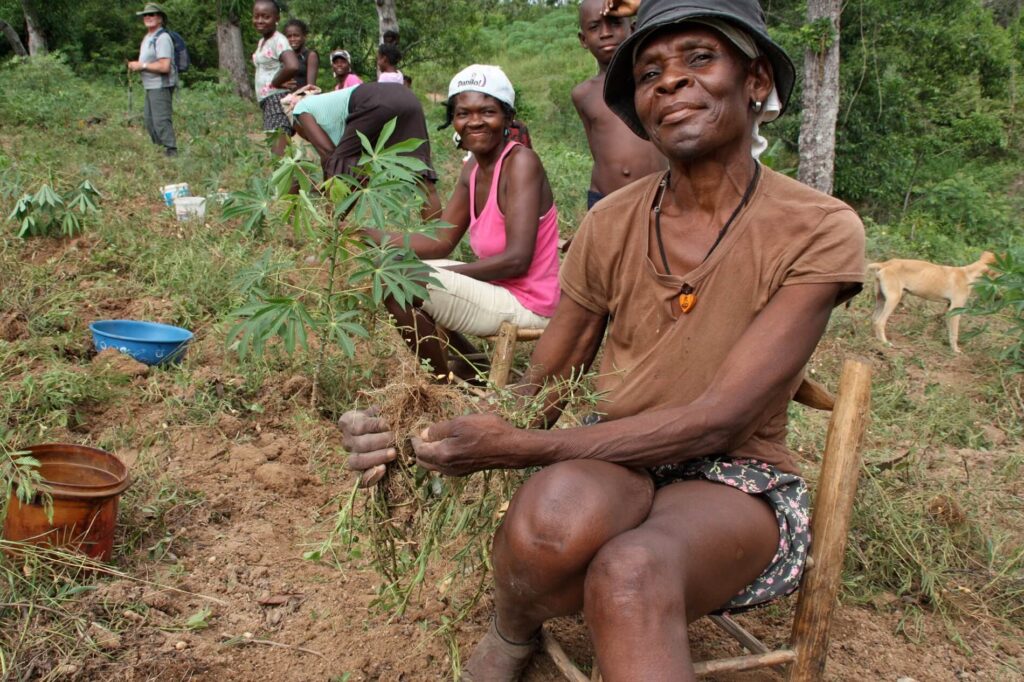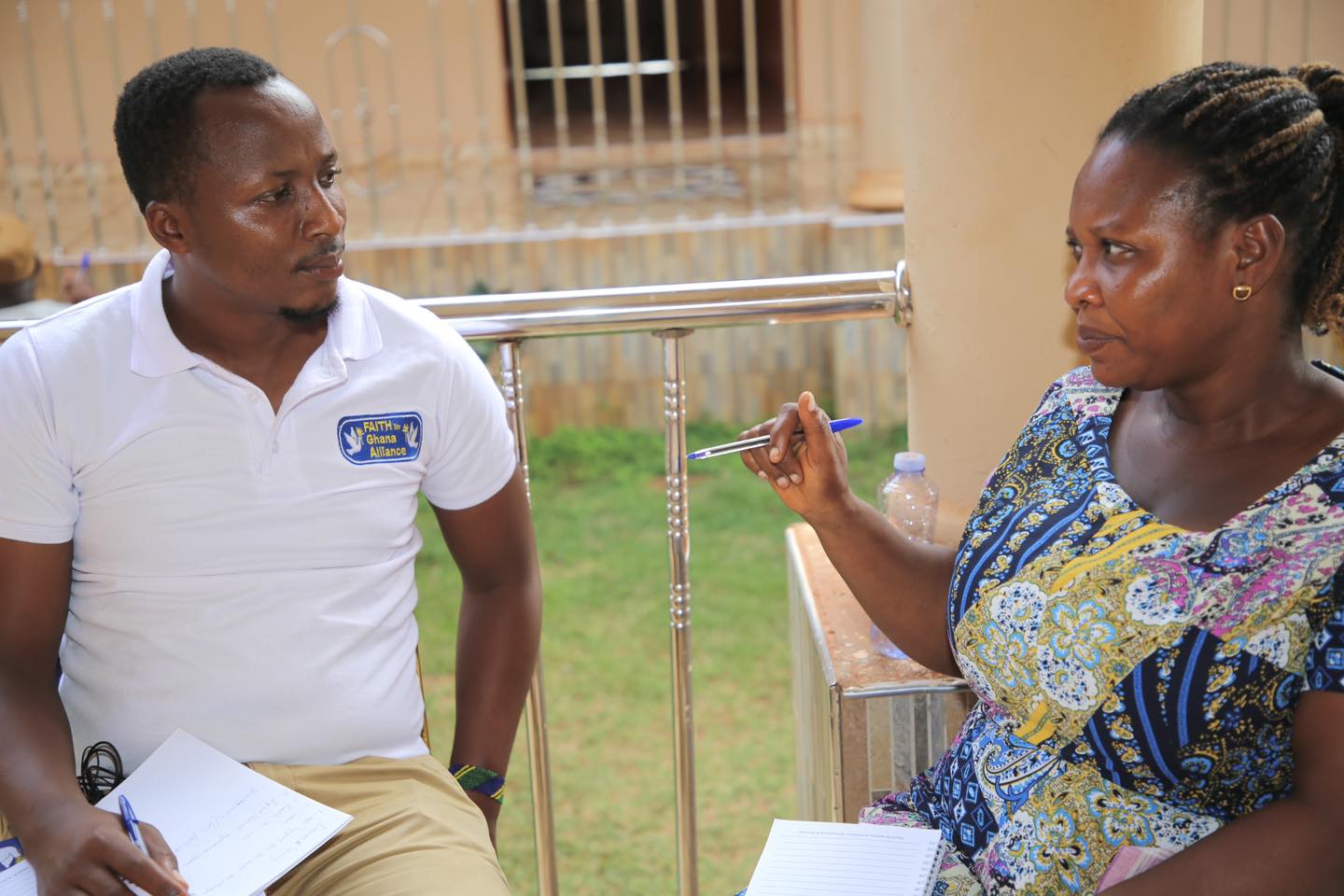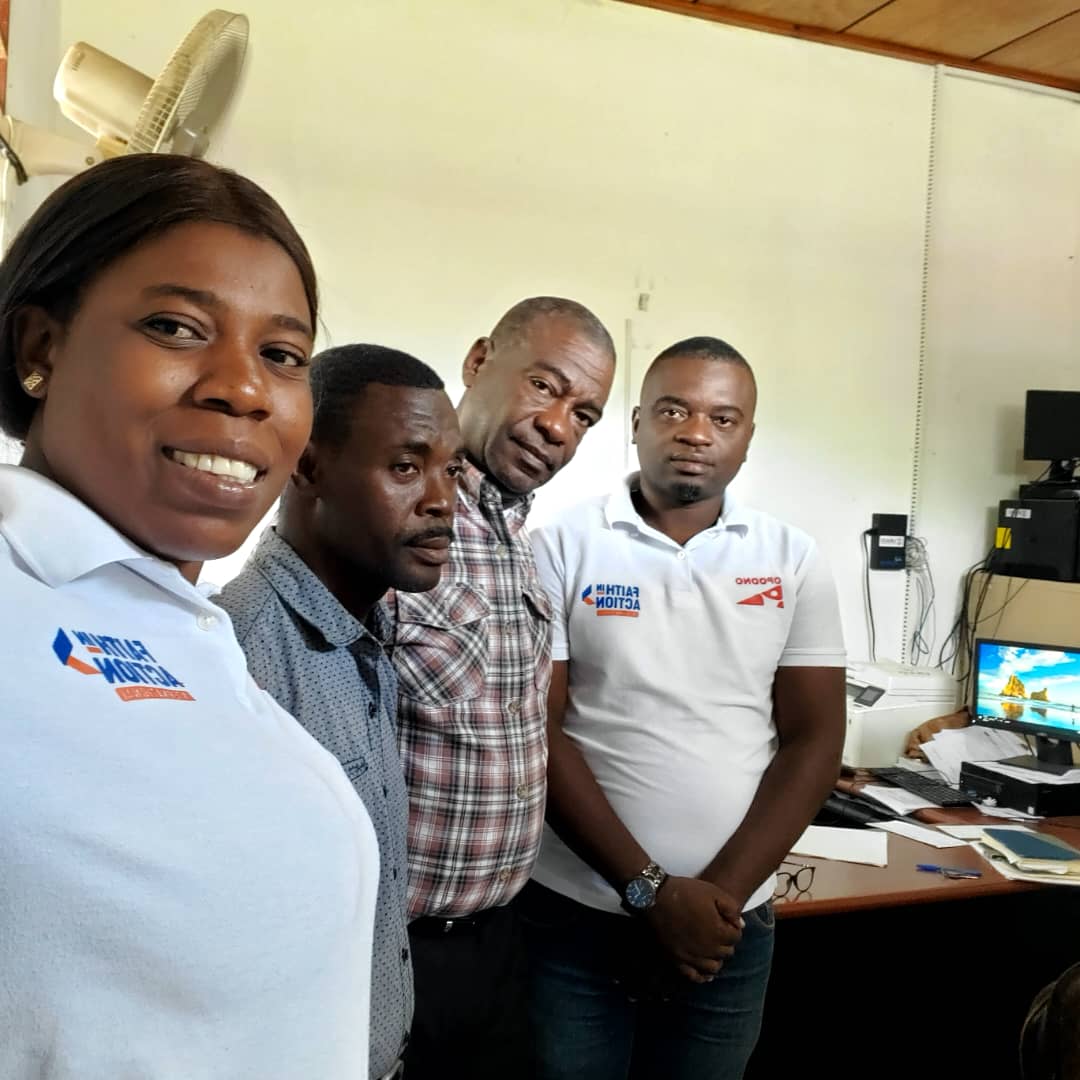FAITH in Ghana Alliance held a “Train the Trainers” retreat in Techiman, Ghana to prepare thirty lay people and clergy to train and coach local multi-faith teams. The…
Haiti: Farmers Begin to Harvest First Seed Bank Crops
When OPODNE listened to more than 4,000 local farmers in Northeast Haiti, they heard repeatedly that farmers needed high-quality seeds and access to credit. One of the best ways to solve both those problems is a Community Seed Bank, which provides farmers with good seeds and advice from agronomists. Farmers “payback” the Seed Bank by returning more seeds at the end of the harvest.
At the suggestion of USAID staff, OPODNE and the St. Barnabas Agricultural Center (CASB) submitted a $500,000 proposal to USAID to fund a Northeast Haiti Community Seed Bank. When USAID turned them down, saying Haiti wasn’t eligible for unsolicited locally led funding proposals, OPODNE and St. Barnabas decided to proceed nonetheless.
With $17,000 raised from donors in the U.S., they selected seven communities to receive seeds and support from agronomists. With half of Haitians facing hunger and a decade-long drought, OPODNE and CASB felt it was urgent to get good seeds into the hands of local farmers.
Through OPODNE and CASB, Haitian farmers are carrying forward the powerful Haitian tradition of “kombit,” where people work together to strengthen and serve their community. Local residents in Mombin Crochu, where OPODNE has long supported strong grassroots organizing, worked together in early October to harvest peanuts that had planted at the beginning of the summer. Seeing seeds grow into crops that can now be harvested is bringing hope to Haiti.
OPODNE leaders also finally hear directly from USAID Administrator, saying that USAID “values and commends the work that your organization does to support smallholder farmers and the fight against food insecurity in Haiti” and that she “shares OPODNE’s concerns about the challenges that small-scale farmers face in Haiti, and we recognize the importance of supporting these farmers and their efforts to reduce food insecurity in the country.” USAID also agreed to release a report on that it had funded on water management in North Haiti. Administrator Power promised that USAID Haiti Mission Director Jennifer Link would follow up directly with OPODNE to explore ways to collaborate.
OPODNE’s June 28, 2023 letter to Samantha Power asked USAID to take eight steps to support local Haitian farmers, including working with community and peasant groups and local officials to co-create a comprehensive water management plan for the Plaine du Nord–Massacre Aquifer in Northern Haiti, provide USAID funding to the Inter-American Foundation to double their available resources to support Haitian community-based organizations directly, and to redesign its agriculture efforts in Haiti to work through local organizations around the priorities of local farmers for seeds, tools, water, credit, and agronomists.
Twenty diaspora and faith-based organizations in the U.S. joined the call for USAID to change its approach to agriculture in a September Open Letter to Congress on Haitian Food Sovereignty. OPODNE, which now has teams in 62 communities across Northeast and North Haiti, will continue to work with CASB and other allies to restore the capacity of Haitians to feed themselves.



